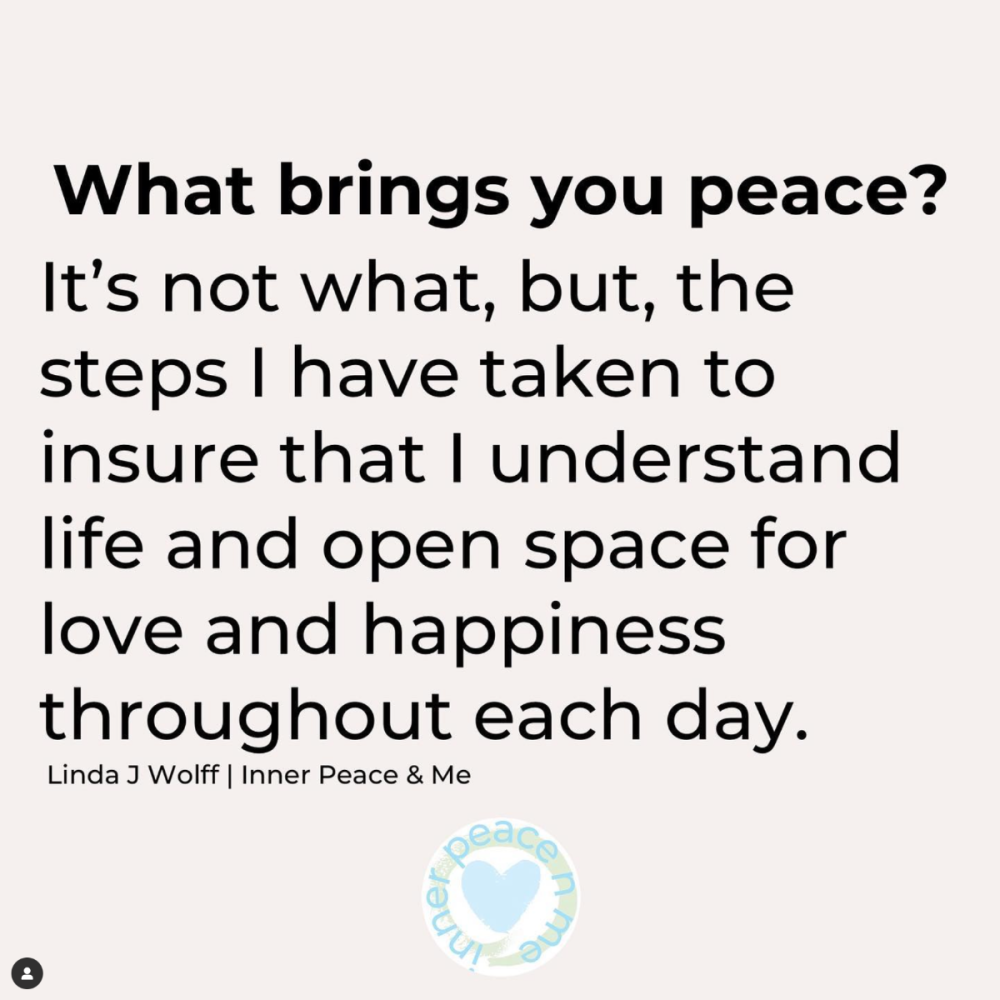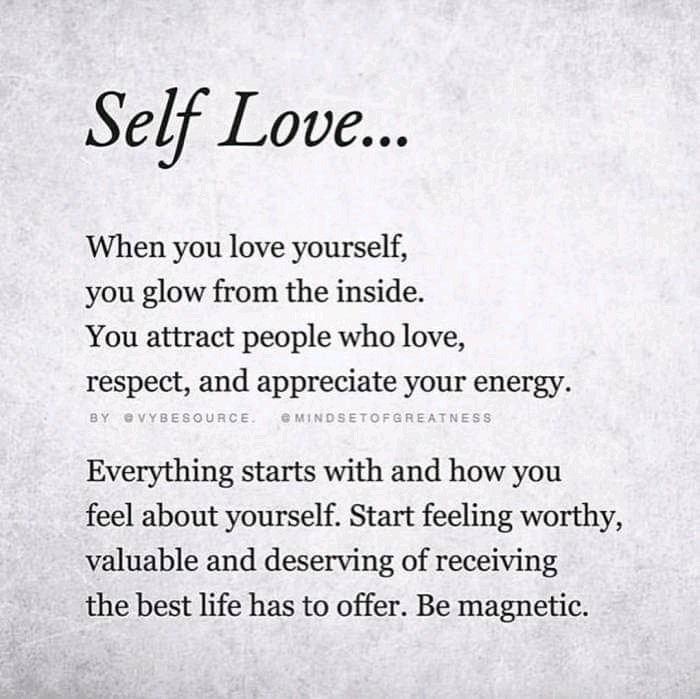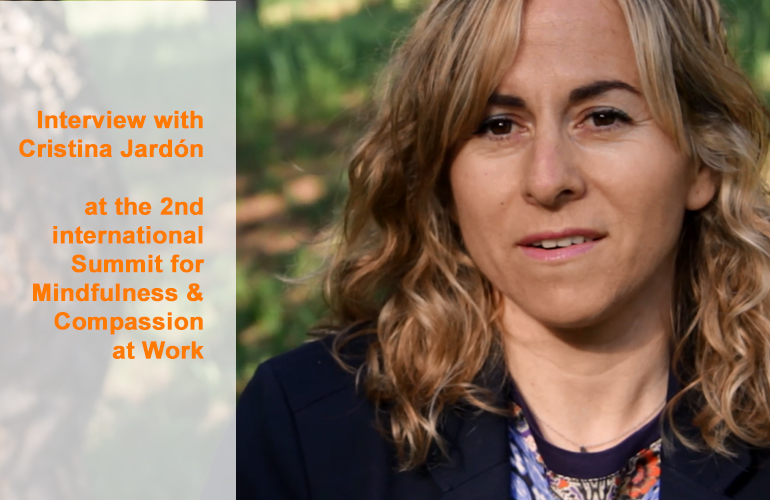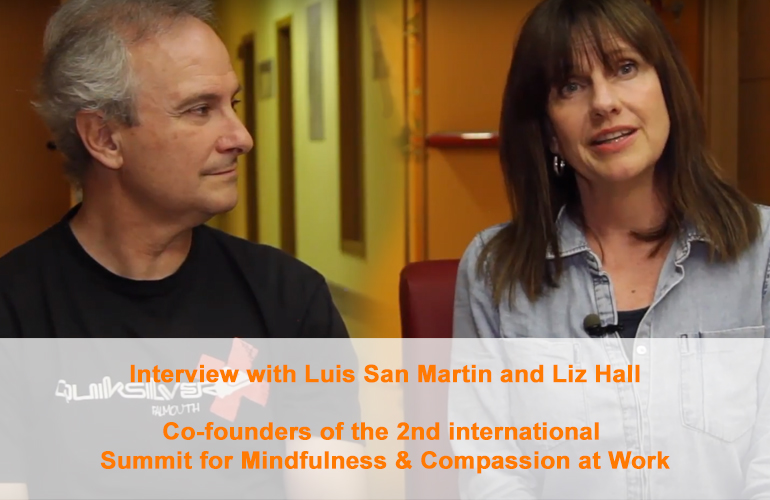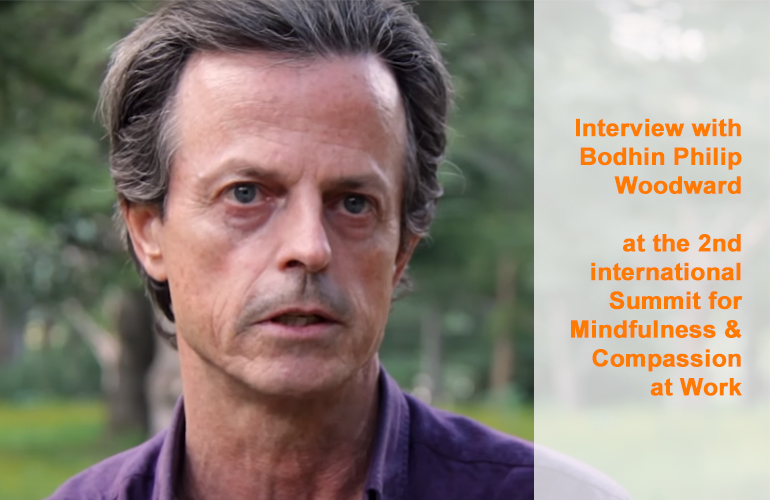Search the Community
Showing results for tags 'self-compassion'.
-
Hello, my name is Linda! Wanted to reach out and wish everyone well. By day you will see me helping other's find inner peace, if I'm not there, I'm narrating my podcast "Cultivating Calm Within.) I love articulating articles for inner peace and how I came about finding inner peace myself. So, I share my journey and there steps of practice that brought me here. I am looking forward to meeting new people here on Happiness.
-
Taking 10 minutes to meditate in the morning can set you up for a calm, compassionate and productive day ahead. Meditation practitioner Ann Vrlak explains why and discusses some morning meditations you can try out. Imagine what you could accomplish if you started your day alert, content and creative. On the other hand, imagine going out the door feeling overwhelmed, ungrounded and unhappy. If you find yourself stressed and rushed even before you get out of bed, morning meditation may be the perfect medicine for you. You can’t control what your day will bring, but you can ground your being and body in calm, clarity and compassion with morning meditation. And you don’t need an hour or even 30 minutes to do it. Setting aside as little as ten minutes, you can bring these qualities with you into your day. The importance of morning meditation In fact, many people specifically choose mornings for their meditation practice. Why? Because mornings are special. • JOIN US! Sign up to learn more about meditation and mindfulness • Firstly, you’re in a unique state when you first wake up. Your body, mind and soul are relaxed and receptive. Whatever you do first thing in the morning has a greater impact than at others time of day. Which do you think will lead you into a happier day? Listening to stressful world news and scrolling through your newsfeed or taking time to immerse yourself in self-care, quiet and acceptance? Also, many of us seem to wake up immediately into our to-do lists and our worries. That’s stressful. A short morning meditation will create a space for you to recognize and rest in your 'being' rather than in 'doing.' You will connect with being aware, being present; with whatever is here now for you. “You can’t control what your day will bring, but you can ground your being and body in calm, clarity and compassion with morning meditation.” Finally, on the practical side of things, mornings are often quieter. It can be a wonderful time to sit and rest in the silence inside you, free from distractions. The benefits of morning meditation A morning meditation routine will bring you all the usual benefits of meditation: Increasing self-awareness and self-compassion Strengthening empathy Decreasing anxiety and depression Rediscovering the spiritual dimension in your life Boosting well-being and happiness Improving concentration and attention Expanding creativity and problem-solving Increasing equanimity and fair-mindedness Quiet quality: peaceful mornings are great for meditation Furthermore, a meditation routine in the morning will give you these added, special benefits: Starting the day with compassion People don’t meditate to become good meditators, they meditate to become more self-aware, compassionate and happy, and to share these gifts with the people they care about most. When you start your day with these qualities, you’ll automatically bring them into your conversations with friends and family, your responses to things not going your way, your tasks at work and how you 'talk' to yourself. Starting the day calm and rejuvenated Meditation is like a massage for your nervous system. The calming and rejuvenating effects of meditation are now well proven. You can begin your day relaxed and content, focused and ready to meet whatever comes your way. Instead of your usual morning stresses, you can start your day with a positive, empowering experience. Tips for morning meditation Sounds good, right? If you’d like to give morning meditation a try, here are some tips to get started. Where and when With a bit of thought, you can easily find 10 minutes in your morning, wither by skipping your morning social media surfing habit or setting your alarm that little bit earlier. Depending on the type of meditation you choose, you can do your morning meditation routine almost anywhere: In bed Sitting in a quiet space in your home. On the train or bus on your morning commute .embed-container { position: relative; padding-bottom: 56.25%; height: 0; overflow: hidden; max-width: 100%; } .embed-container iframe, .embed-container object, .embed-container embed { position: absolute; top: 0; left: 0; width: 100%; height: 100%; } A sample 10 minute meditation YouTube/Goop Types of meditation There are many different types of meditation you can choose from to start with first thing to begin your day. There are practices that use your breath, concentration, body awareness, thought and emotions, as well as exploring your deepest sense of self. In fact, any practice that appeals to you can become your morning meditation. Here are a few of the most popular morning meditations. 1) Mindfulness meditation The core practice of meditation, mindfulness, can be a wonderful way to start your day. Mindfulness is paying attention to the present moment, as fully as you can, with kindness and curiosity. With mindfulness, you start your day with an openness and acceptance about whatever you’re experiencing: worry, happiness, planning or physical discomfort. Everything becomes part of a practice of simply being with yourself, in an accepting and caring way. 2) Body scan/embodiment meditations Body scan practices are a lovely way to rise up through sleep to wakefulness. You can, of course, do a body scan while you’re still in bed – you just need a bit of extra attention not to fall back to sleep! RELATED: Does meditation really work? Here's what science says Body scan practices guide you through sensing each part of your body in a sequence, from your fingertips, to your stomach, to your toes. Your body is more open in the morning, so this practice can be a great way to let your awareness soak into all parts of your body to feel energized and deeply present, while your mind takes a break. Watch our body scan meditation script video below to get started or click through to read more about this powerful and popular technique. .embed-container { position: relative; padding-bottom: 56.25%; height: 0; overflow: hidden; max-width: 100%; } .embed-container iframe, .embed-container object, .embed-container embed { position: absolute; top: 0; left: 0; width: 100%; height: 100%; } 3) Breath meditations Breathwork is a powerful choice for meditations in the morning. And there are a whole range of breath meditations, from those that create relaxation – such as conscious breathing – to those that increase mental focus and energy. So, you can choose one that best fits your needs in the morning: Equalized breath: sample morning meditation I’d like to show you how to do a simple breathing practice you can do at home or on your morning commute. The Equalized Breath will relax your nervous system and give you a stable 'home base' to come back to when your mind wanders. Don’t worry, everyone gets distracted. It’s not ‘wrong,’ it’s a key part of meditation practice. Find a comfortable sitting position and, if you can, let your eyes gently close. Take a minute to allow your body to really relax and take a few deep breaths. For this practice, adjust your breath so all four parts are of equal length. You count to four during your in breath, hold your breath to a count of four, exhale for four, and hold your breath out to a count of four. Then hold for four again. It’s really important not to strain. If four seconds feels too long, reduce it to three. And, if you can comfortably do longer, try for six seconds. The important things are: not to strain and to keep all four parts equal in length. And, when a thought, feeling or sensation distracts you, that’s OK. Just start again, breathing and counting, focusing on your breath. Do your best to be non-judgmental with yourself if your mind wanders off. Remember: mindfulness is watching ‘with kindness and curiosity.’ Kindness encourages you to open. Judgement closes you down. Morning meditations sets you up for the day shutterstock/Ekaterina Iatcenko Morning meditation may be the most powerful place for you to start exploring meditation. And, with ten (or more!) minutes of meditation during the AM, you will rest in a sense of being and presence, be kind and more accepting with yourself, and connect with silence and strength. Find a practice that appeals to you and try it for a week. Start your day with more calm, clarity and compassion and see how it makes you – and those around you – feel. ● Main image: shutterstock/Pro-stock studio Liked this? Then check out 5 strategies to help you develop a regular meditation practice. happiness.com | The fine art of being: learn, practise, share Are you a happiness.com member yet? Sign up for free now to: ■ enjoy our happiness magazine with practical life tips ■ share and support others in our happiness forum ■ learn with free online classes in our happiness Academy Gratitude meditation | 6 phase meditation Written by Ann Vrlak Ann Vrlak is Founder of OneSelf Meditation and a meditation practitioner for over 25 years. She’s a Certified Meditation Teacher for adults and for children (the best job ever!). She loves to share how the perspective and practice of meditation can support people with their everyday stresses and on their journey of self-discovery.
-
Many of us are guilty of self-criticism, and this trait ultimately makes us weaker and less capable. Self-love, on the other hand, pulls us to a larger, kinder place. Ann Vrlak explores the benefits of self-love meditation and gives you a practice to get started with. Self-love. Does the phrase make you relax and smile, or does it make you cringe? Your reaction to this question will tell you a lot about yourself and if self-love meditation is something you may want to try. Being critical of ourselves, having a lot of negative self-talk, is unfortunately all too common. But, that doesn’t make it any less damaging to our sense of well-being and happiness. Indeed, self-criticism is intimately linked with not feeling worthy of love. Somehow, somewhere along the line, many of us learned that we have to earn love, rather than it being our birthright. We feel we have to be perfect to be loved. The problem is there’s no such thing as human perfection. Interestingly, in a conversation with Western psychotherapists, the Dalai Lama was puzzled by the concept of “low self-esteem” – it was not something he recognized in Tibetan culture at all! Self-love: the two wings of meditation Your head and your heart are the two wings of meditation. The head provides step-by-step practices, context and an understanding of the goals of meditation. The heart is the environment, the space you bring to meditation. If you follow a practice, step by step, but feel unloving and self-critical, it will be an ineffectual practice indeed, not to mention a subtle kind of self-punishment. Better not to meditate at all! Reduce tension and build strength through self-love meditation Self-love meditation not only makes you happier, more creative and more resourceful, but it automatically opens your heart to others. And don’t be fooled: self-love builds strength. Self-love or self-compassion has an undeserved reputation as being weak or self-indulgent. Not so. Indeed, one expert in self-compassion, Kristen Neff, makes the case for the opposite: that it builds resilience, self-awareness and compassion for others. What are the benefits of self-love meditation? Here are just a few of the advantages to practising self-love meditation. Incorporate it into your daily schedule and you should start to feel some of the following benefits: 1. Reduces tension and anxiety Self-criticism or self-judgment feels just like criticism or judgement from someone else. It causes anger, sadness or even fear, and causes tension and anxiety. Practising self-love meditation literally helps your nervous system relax and feel safe. 2. It feels better! Continuing on from the last point: who would you prefer to spend time with? Someone who criticizes what you think, how you look, how you act? Or, someone who’s curious about you, is kind, and treats you with respect and compassion? If you prefer the latter – spoiler alert! – you can treat yourself the way you want others to treat you. Wouldn’t that be wonderful? 3. Brings your unconscious self-criticism into the light Many, many people resist self-love meditations. Why? Because, as I’ve already mentioned, self-criticism is seen as “normal,” to some extent at least. There are many possible reasons for this that are outside the scope of this article! For now, it’s enough to know that practising self-love meditation will show you where you are on the spectrum of self-love to self-criticism. If you are nearer to the self-criticism end, that is not something to criticize yourself for. “Self-love meditation not only makes you happier, more creative and more resourceful, but it automatically opens your heart to others.” Meditation is a tool for self-knowledge. If your self-love meditation shows you your unconscious habit of negative self-talk, it’s OK, you’re not alone! You can start to notice this self-talk, how it makes you feel and how it affects what you do. And if you want to make things better. 4. Builds strength Self-criticism essentially makes you smaller and less capable. Self-love, on the other hand, takes you to a larger, kinder viewpoint on yourself. You see your ‘weaknesses’ or limitations without feeling threatened by them. This makes change and growth something you’re naturally drawn to do – you can choose it consciously from a healthy place. 5. Rest our minds We use our minds so much, we can forget to feel. It’s healthy to ‘unplug’ your mind and remember what is most important to you. Is it to feel happy? To feel safe and loved? A self-love meditation is a simple and powerful way to take quality time for yourself, let your mind rest and immerse yourself in love and respect. A self-love meditation practice You can do this practice sitting or lying down. Get comfortable and start by following your breath for a few minutes. When you’re feeling relaxed, notice any emotions you’re having in the moment. In particular, is there any slight feeling of upset or unhappiness that you can find? For your first few sessions of the practice, it’s best to work with something small, but you be the judge of what you’re up for. If nothing comes up right now, you can bring to mind a recent situation that caused you a bit of emotional turmoil. For a few breaths, notice where that emotion is located. You might feel sadness in your throat, for example, or anger in your solar plexus. See where you physically feel your emotion most strongly. Be specific. And notice the thoughts that accompany the emotion. Do you have thoughts of self-blame, regret or unworthiness? Now, repeat one of the following statements silently or out loud. If none of the statements feel right to you, that’s OK. See if you can find another that fits and has the same message of attention and caring. Here’s the first statement. “I see you [name your emotion]. That sounds really hard, I’m sorry.” Here’s another: “I’m here. Stay as long as you like [name your emotion], you’re welcome here.” Or: “I see you [name your emotion]. I love you.” If you have resistance to these statements, welcome to the club! See if you can feel the intention and meaning of one of these statements, even for a few seconds. What does it feel like to turn toward your own discomfort with a caring attention, rather than turning away from it, or minimizing or judging it? And if you just can’t feel any self-love toward yourself, toward your own pain, does that evoke some self-compassion in you? How hard is it to move through life in this way? When you feel resistance or judgement about the practice itself, include that, too: “I see you resistance. That must be hard. I’m sorry.” You can picture someone you care about having the emotion you’re experiencing. Can you feel the compassion you naturally want to give them and direct it to yourself? Is it actually true that they are worthy of love, but you are not? It helps to realize your common humanity: whatever upsetting or difficult emotion you’re experiencing right now, there are people all over the world experiencing the same thing. Suffering in big and small ways is just part of being human; it’s not a punishment. Recognizing that many of us are worried about our aging parents or about losing our job can soften your heart toward yourself and others. Keep feeling your uncomfortable emotion and saying your loving statement. If the words just get in the way, just see if you can feel love in your heart. Let love come into contact with your suffering. Continue the practice as long as it feels comfortable, watching and listening closely for how self-love feels for you. Conclusion: self-love meditation Self-love meditation can uncover perspectives and insights that you can’t see when you’re criticizing yourself. Do this practice as a kind of call and response. Send out self-love in your chosen statement and watch for a response. If you’re not used to sending yourself love, the response could be very small or very fleeting – part of you may not “believe” what you’re sending or not want to accept it. So, really watch for, listen to, and feel any response from your heart and body: a softening, a sense of relief, a bit of gratitude. Those small signs are seeds you can nurture each time you practice self-love meditation. Main image: shutterstock/WAYHOME studio happiness.com | The fine art of being: learn, practise, share ■ enjoy our happiness magazine ■ share and support in our happiness forum ■ learn with free online Academy classes Burnout | Stress management | Mindfulness Written by Ann Vrlak Ann Vrlak is Founder of OneSelf Meditation and a meditation practitioner for over 25 years. She’s a Certified Meditation Teacher for adults and for children (the best job ever!). She loves to share how the perspective and practice of meditation can support people with their everyday stresses and on their journey of self-discovery.
-
Accepting ourselves unconditionally is essential if we want to improve our levels of self-acceptance and emotional wellness. Discover three practical techniques you can implement that will help you do exactly that. In his blog post on Greater Good, Srini Pillay defines self-acceptance as “an individual’s acceptance of all his/her attributes, positive or negative. It includes body acceptance, self-protection from negative criticism, and believing in one’s capacities.” He links improved emotional wellness to self-acceptance. Though closely related, self-acceptance is different from self-esteem, as the latter refers to how worthwhile or valuable we see ourselves. The former, on the other hand, refers to a comprehensive affirmation of self. This allows us to accept all of ourselves, not just the good. We are able to recognize our limitations and weaknesses, but this by no chance hinders our ability to accept ourselves for who we are. RELATED: 12 ways to practise self-acceptance Many of us who have low self-acceptance try to suppress the feeling by attempting to accomplish great things. But this only serves as a Band-Aid approach to improving our self-esteem. Srini Pillay goes on to say that, “this only helps your self-esteem for a while. That’s because achievement is a poor substitute for intimacy.” Open up: emotional wellness can be achieved with honesty The truth is, if we want to improve our self-esteem and emotional wellness, we need to honestly explore all parts of ourselves that we've not come to terms with and that we have not fully accepted. It’s only when we stop being harsh critics of ourselves that we can develop a positive sense of who we are. This then explains why self-esteem naturally goes up as soon as we become self-accepting, which is crucial to our emotional wellness and overall happiness. What triggers self-approval? Much like self-esteem, we're able to become self-accepting as children to the extent our parents fully accept us. Scientific studies have shown that children who are younger than eight don't have the ability to create a distinct sense of emotional well-being other than that demonstrated by their parents or other caregivers. Extreme parental evaluation goes further beyond critiquing certain behaviors. For example, a parent may convey the message that their child is ungrateful, not smart enough and so on, and this significantly affects self-acceptance. In short, most of us continue ‘parenting’ ourselves throughout our lives much like how we were parented. It's true that with little or no self-approval, our psychological well-being suffers, and even when we seek help, it's often less fruitful compared to other people in the same situation who are more self-accepting. “If we want to improve our emotional wellness, we need to honestly explore all parts of ourselves that we've not come to terms with.” And in those people that have low self-acceptance levels, the brain sectors that control their emotions and stress levels have less gray matter compared to those people who have higher self-acceptance levels. This means those with lower self-acceptance capabilities physically have less tissue to work with in our brains, which, in turn, can trigger anxiety and stress. Emotional wellness: how to accept ourselves So far we've seen that our parents and the environment around us have had a profound effect on our ability to our self-acceptance. But, in truth, we need to learn to let the past go and discover new techniques of accepting ourselves as we are in the present moment. For the sake of our peace of mind, happiness and overall emotional wellness, we first need to accept ourselves unconditionally. There are three main ways we can boost our self-approval and acceptance levels and therefore our emotional wellness: 1. Self-regulation Self-regulation is a technique that allows us to shut down self-deprecating emotions and internal negative commentary and instead focus on our more positive attributes. Humans are naturally wired to focus on the negative and many of us experience damaging thoughts or feelings, such as not being good enough, handsome/pretty enough, clever enough, selfish, etc. “For the sake of our peace of mind, happiness and overall emotional wellness, we first need to accept ourselves unconditionally.” In fact, repeating these internal conversations damages our emotional wellness. Instead, use self-regulation to restructure these negative feeling and focus more on our positive attributes. Look at any flaws you believe you may have and consider them as great opportunities to help improve yourself. 2. Self-awareness Sometimes, our self-accepting level goes further than our conscious level such that when we are not self-accepting, we essentially split ourselves and feel incomplete. That is, the part that needs forgiveness and the one that should forgive are at loggerheads. Self-awareness helps us understand what is happening at a deeper level. And becoming more self-aware can enable us to improve our emotional wellness. Developing self-awareness can be an ongoing goal that incorporates many different methods. Those include: paying attention to what bothers you about other people, drawing a timeline of your life, asking for feedback from friends/colleagues, clarifying your values, and simply spending time with yourself through mindfulness and meditation. 3. Self-transcendence This allows us to depend on things that are outside of ourselves to define who we are. That is, we turn to an unseen force that connects us with the world. Some of the ways we can become self-transcendent is by contributing to charities, volunteering to help the less fortunate, and so on. Self-transcendence has been proven to impact our brains positively by increasing the release of our feel-good hormones such as dopamine and serotonin. This in turn reduces our stress levels and give us emotional fulfilment, boosting emotional wellness. A family affair: our parents influence our self-acceptance Meditation for increasing self-acceptance Loving-kindness and mindful meditations are two types of meditation that can help us become more self-accepting. By loving ourselves more and not judging ourselves, we're able to lower our brain response to anxiety and stress. As we develop our meditation practice, the activity in our brain regions that affect emotions will start to improve. As humans, we're all unique, and so not all of these methods work in the same way for everyone. The important thing is that if you struggle with self-doubt and internal negative voices that you need to affirm that you need to become more self-accepting and start doing what works for you. Take it one small step at a time, and you should start seeing positive results and a rise in your emotional wellness levels. ● Main image: Colorbox.com happiness.com | The fine art of being: learn, practise, share Are you a happiness.com member yet? Sign up for free now to enjoy these benefits: ■ our happiness magazine with practical life tips and inspiration ■ share knowledge and help support others in our happiness forum ■ learn and self-develop with free online classes in our happiness Academy Self care | Acceptance | Meditation | Body positivity | Nudism Written by Guest Author We're happy to publish articles by guest authors that will broaden the perspective and bring new insights. If you're interested in publishing an article here on happiness.com, please contact us.
-
ON ABUSE AND "SPIRITUALITY" "You attracted it because you desired it". "If you think there's a problem with another's words or actions, YOU are the one who's confused". "Everything is just your projection. Everything is in your mind". "Clear up your vibration and you'll stop attracting bad things to yourself". "You are too attached to the body. Go beyond the body. It's not who you are." "If you have doubts, fears, resistance, pain, anger, then you must be in your ego and totally unenlightened". "The past is an illusion. Let it go right now!". Ugh. I'm so tired of all this New Age spiritual bullshit. I'm tired of ANY spirituality that doesn't fully honour our messy, unresolvable, first-hand, real-time, embodied human experience. That doesn't bow deeply to the struggle of our raw and tender hearts. That guilt-trips us for our imperfections and shames our limitations. No, it's not always your projection. Yes, sometimes other people really ARE abusive and need to be stopped. No, everything isn't always "in your mind". Yes, your body matters. Your feelings too. No, your doubts and fears are not 'wrong' or 'bad' or 'unevolved'. No, you do not 'attract' abuse through a faulty 'vibrational frequency'. No, you do not deserve to be violated in any way, in the name of Truth, in the name of God, in the name of Love, or IN ANY OTHER NAME. Yes, your boundaries deserve to be respected, your 'yes' AND your 'no' too. No, it's not okay for spiritual teachers to abuse people "for their own good" - to shock them into awakening, to enlighten them, to help them drop their "ego". Teachers that use abuse as a tool are simply abusers, not teachers. I reject any spirituality that dismisses our tender, vulnerable, fragile humanity. I reject any spirituality that shames us for our precious human thoughts and feelings. I reject any spirituality that begins any sentence with "If you were enlightened..." I reject any spirituality that divides self from no self, divine from human, sacred from profane, absolute from relative, heaven from earth, duality from nonduality, material from spiritual. I once saw a popular spiritual teacher addressing a recently bereaved woman. He said, "Your heartbreak is illusory and only the activity of the separate self. One day the separate self will vanish, along with all suffering". And in that moment, I saw a deep, deep sickness and inhumanity at the heart of contemporary spirituality. The invalidation of trauma, the false promises, the power games, the suppression of the feminine. And I vowed to bow to that fucking broken heart as if it were God Herself. Until the end of time. - Jeff Foster
-
Many of us show compassion easily to others but struggle when it comes to ourselves. Stanislava Puač Jovanović explains why self-compassion is essential to our well-being and offers six practical steps on practising it. When things go wrong, some of us will be able to support ourselves with warmth and self-compassion. However, many of us tend to do quite the opposite. We beat ourselves up. How did it come to be that we accepted to live our lives burdened with (unconstructive) self-criticism? As with anything else about the human psyche, the overly criticizing mindset is also a multilayered phenomenon. However, one of the most common causes are the beliefs and values we’ve developed during our childhood. And, although we still may show compassion to others during their times of need, we fail to do the same when we’re struggling. Strange? This lack of compassion for ourselves has deep-seated roots. And they’re not always entirely logical. For that reason, it’s so difficult to overcome it. However, it can be done: read on to discover six proven ways to develop self-compassion. What exactly is self-compassion? Self-compassion is a concept that counteracts the adverse beliefs we have about ourselves. In most cases, whether we’ll be able to comfort ourselves through the tough times gets decided in our childhood. We learn from our parents. Be it through direct or indirect messages we receive, we absorb those ideas. They become blueprints of our future world. Whether your parents were harsh and criticizing, or they were self-destructive and self-criticizing, you probably introjected such an attitude toward yourself into your core. Be kind to yourself and practise self-compassion Self-criticism is rife. And it’s a nasty enemy to have. Research has demonstrated over and over again that it’s closely associated with a range of emotional disturbances. Depression, anxiety and eating disorders are merely a few of the consequences of unrealistic negative images people hold about themselves. Even if you don’t develop a mental health disorder, living your life fraught with self-condemnation isn’t the right way. It will make you utterly unhappy, unproductive, and vulnerable. “Although we may show compassion to others during their times of need, we fail to do the same when we’re struggling. Strange? This lack of compassion for ourselves has deep-seated roots.” The most vicious aspect of self-criticism is that it mostly occurs out of our conscious awareness. We can access the negative beliefs we have about ourselves, but we rarely do it. Even more seldomly do we question these core ideas. This elusive nature of self-criticism is one more reason why you should wholeheartedly practice self-compassion. RELATED: How to stop ruminating with these 3 techniques Studies have shown that the ruminating self-loathing doesn’t get resolved with classic self-help cognitive intervention. What is more, it gets even worse. Moreover, those who are depressed as a result of self-criticism also have trouble imagining positive scenes and self-supporting images. In other words, when you’re failing at being self-compassionate, you can’t even imagine a bright future for yourself. So, the cycle continues. Unless you put a stop to it. Three components of self-compassion Psychologist Kristin Neff was the first to measure self-compassion. She explained that having compassion for oneself means offering self warmth and unconditional acceptance. That doesn’t mean being selfish and egocentric. It does not condone engaging in self-pity or self-indulgence. And, we might add, it doesn’t exclude constructive criticism. When you're self-compassionate, you recognize the difference between making bad choices and being a thoroughly appalling person. Simply put, when you’re compassionate to yourself, you won’t keep telling yourself all those nasty things you usually do if you’re not. And you won’t stagnate or suffer as a result. Neff has explained the three components of self-compassion: Self-kindness The ability to be supportive, kind, and forgiving toward yourself. Common humanity Realizing that part of the nature of human existence is to experience pain, loss, failure, and make mistakes. You’re not alone in your struggles; there’s always someone somewhere who has been through the same (or worse). Mindfulness Practising awareness of your experiences without judging them. Self-compassion is about the acceptance of upsetting thoughts without letting them overtake your entire life. .embed-container { position: relative; padding-bottom: 56.25%; height: 0; overflow: hidden; max-width: 100%; } .embed-container iframe, .embed-container object, .embed-container embed { position: absolute; top: 0; left: 0; width: 100%; height: 100%; } Kristin Neff's self-compassion theory © YouTube/Greater Good Science Center Six ways to practise self-compassion The good news is that self-compassion can be learned. It takes practice, but most good things require some effort. Here are six ways to practice self-compassion in your day-to-day life. 1. Practice self-forgiveness The very first step of self-compassion is to forgive yourself. And keep doing so every day. There's no point in punishing yourself for your past mistakes. What makes sense is learning from them and growing as a person. You will never be flawless and faultless – because no one is. Yet, your most profound worth doesn’t come from being perfect, successful, recognized, famous, or whatever your poison may be. With self-compassion, you’ll learn to allow yourself to be imperfect – and love yourself as such. 2. Treat yourself as you would a loved-one or child The next time you’re about to tell yourself how stupid or incompetent you are, ask yourself: “Would I speak this way to my child (or anyone whom you love dearly)?” You probably wouldn’t. Because you do know how destructive it is. You just need to learn not to be such a molesting “parent” to yourself. “The very first step of self-compassion is to forgive yourself. There's no point in punishing yourself for your past mistakes. What makes sense is learning from them and growing as a person.” In most cases, we don’t even repeat the messages we heard from our parents – they weren’t this harsh. What we do incorporate into our self-expectations are our childish interpretations of our parents’ words and values. That’s one more reason for you to revise your beliefs about how you should be. 3. Practice mindfulness and mindful meditation As it is one of the components of self-compassion, incorporate mindfulness into your life. Be in the present moment, be lovingly kind, and observe the world (both external and internal) without judgment. If you need help mastering the skill, sign up for mindful meditation classes, listen to some mindfulness podcasts, and check out these mindfulness tips. With time, you’ll notice how self-criticizing thoughts come, but they don’t stick and loop in your head anymore. 4. Watch out for automatic thoughts and language It’s precisely these thoughts that tend to make us incapable of self-compassion. To regain control, keep an eye on them and bring them to your consciousness. You can keep an automatic thoughts journal in which you’ll note down the original thought and how it made you feel. Then, analyze it to see if it can hold out against logical questioning. Spoiler alert – it can’t. Self-love and compassion is possible with practice shutterstock/KieferPix So, replace such thoughts – and your language – with positive, compassionate versions. Once you retrain your mind to go for the affirmation, you’ll notice how much more encouraging and warm you are to yourself – and how much better you feel as a result. 5. Remember: you’re not alone in your imperfection When we suffer, we tend to feel as if we were the only ones who were going through such an ordeal. However, chances are someone somewhere already experienced it (and survived). Learn to recognize that those feelings of disappointment, incompetence, or self-repugnance are shared across the human race. By doing so, it will become easier to overcome obsessing about and being enslaved by them. Instead, learn from your failures and grow as a person. 6. Work with a psychotherapist or a life coach Finally, we appreciate how difficult it may be to develop self-compassion. Especially for those with a lifelong history of knocking themselves down. It just doesn’t come naturally. So, seek professional support. Reach out to an expert who will work with you until you become wholly and unconditionally self-compassionate. Round-up: self-compassion Developing self-compassion takes time and practice. Yet, this isn’t a reason to give up. After all, your relentless self-criticism also wasn’t built in a day. However, let a simple thought guide you through the process – you’re not a child anymore. You have the power to reassess and change your convictions now. Be a kind and supportive parent to yourself. Teach your inner child (and your self-criticizing adult) to be compassionate to the person you’re bound to spend your entire life with – yourself. Main image: shutterstock/HBRH Written by Stanislava Puač Jovanović Stanislava Puač Jovanović has a master’s degree in psychology and works as a freelance writer and researcher in this area. Her primary focus is on questions relating to mental health, stress-management, self-development and well-being.
-
Psychologist Beth Kurland explains how to face emotional challenges using mindfulness, acceptance and self-compassion. On behalf of the Greater Good Science Center. When I was 15, my mother died in a car accident. Not knowing how to deal with the enormity of my loss and grief, I threw myself into homework and activities, never missing a day of school and trying to control everything in my life. This strategy succeeded in some ways — I was able to get good grades, for example. But the inner cost of pushing away my grief and sadness showed up in other ways. I became anxious around things I couldn’t control, like unexpected changes of plans and minor injuries. And, as I grew older, I started to harbor irrational worries, such as the fear of exposing my baby in utero to toxic fumes when walking past a strange smell. It was not until my first child was born, with the help of a therapist, that I was able to fully grieve the loss of my mother and feel all of the emotions I had spent so many years trying to ward away. Embracing the uncomfortable As I write about in my new book, Dancing on the Tightrope, the desire to avoid what’s unpleasant (and seek what’s pleasant) is part of human nature. But avoiding unpleasant emotions — rather than accepting them — only increases our psychological distress, inflexibility, anxiety, and depression, diminishing our well-being. Sit with it: embracing anxiety and depression can be positive Research suggests that when we turn toward our cravings, we're less likely to engage in addictive behaviors; when we turn toward our physical pain, we're less likely to be trapped in cycles of chronic pain; when we turn toward our sadness, we're less likely to be stuck in depression; and when we turn toward our anxiety, we're less likely to be paralyzed by it and can find it easier to bear. Learning to embrace dark emotions brought not only a significant reduction in my anxiety, but an ability to experience the joys of life more fully and a growing trust in my ability to handle life’s challenges. As a therapist, I've also seen tremendous healing with my patients as they've learned to embrace their difficult emotions. “Research suggests that when we turn toward our sadness, we're less likely to be stuck in depression. When we turn toward our anxiety, we're less likely to be paralyzed by it.” If we want to live more fully and be our most authentic selves, we need to turn towards our pain, not try to suppress it. But what can help us get there? The tools of mindful attention, self-compassion, and acceptance — which all come together in a practice I call “The Door.” To do this practice yourself, make sure to start with emotions that are not too intense; you might want to work with a skilled therapist, especially for more intense emotions. Here’s what The Door involves: Step 1: Develop a willingness to open the door Imagine that you're opening the door and welcoming your emotions in, to come and have a seat somewhere in the room. You can picture this seat as close to or as far away from you as you like. From this perspective, you can take a gentle and curious look at what is there. Often people will picture their emotions as having some kind of color, shape, or form; sometimes they envision their emotions as cartoon characters or as younger parts of themselves. Part of the practice is simply to accept whatever arrives. This is a new experience for most people. Who wants to let anxiety in the door? Who wants to welcome in sadness or anger? But when we let in whatever arrives, and see it from a bit of a distance, we can take a curious look and explore what's there. Step 2: Take a curious look at whatever walks in the door Mindfully observing what we're feeling can help us cope with whatever is before us. It can be useful to name our feelings (oh, that’s hurt; that’s jealousy; that’s anger) because, as simple as this sounds, we often don’t pay attention to the nuances of what we are feeling; consequently, important information gets lost along the way. Labeling our distressing emotions gives us a way of validating our inner experience, but it has the added benefit of dialing down their intensity. “Who wants to welcome in sadness and anger? But when we let in whatever arrives, we can take a curious look and explore what's there.” It can also be beneficial to see our emotional “visitors” as temporary guests. Adding the phrase “in this moment” to a statement like “I'm feeling stress, anger, or hurt” can help us be with what is there without feeling overwhelmed. Other things you might say to yourself include: Can I allow myself to notice how this is showing up in my body and in my thoughts? If this feeling or part of me could talk, what might it say? What might it want or need? Being curious rather than fearful or rejecting provides a better lens for understanding your feelings. Step 3: Give yourself the gift of compassion Besides pushing away uncomfortable feelings, many of us have been conditioned to judge our emotions in negative ways. We’ve learned that if we show sadness, it’s a sign of weakness; that we're a bad person if we feel anger or jealousy; that we should “move on” when we experience loss. When we come face to face with difficult emotions, we often tell ourselves to buck up and stop being silly or that there’s something wrong with us. Self-compassion: imagine sitting with a caring friend When we practice mindfulness in combination with self-kindness and a recognition of our common humanity (the fact that we all suffer as human beings), we cultivate self-compassion, a quality that has been linked to psychological well-being. To practice self-compassion, imagine sitting with a good friend who is suffering and think about how you might extend a gesture of compassion. What would your body language be like? How might you listen? What sensations would you feel around your heart? Now picture that person extending compassion towards you. What might they say or do? What words would you find comforting or soothing? “When we practice mindfulness in combination with self-kindness and a recognition of our common humanity (the fact that we all suffer), we cultivate self-compassion.” Chances are, they would not be telling you to cut it out or that you shouldn’t be feeling this way. They might say, “That sounds really hard. I’m here for you.” Or perhaps they might simply extend a hand. When we can learn to sit mindfully with our own emotions, and bring compassion to whatever we're experiencing, it’s as if we've become that caring friend, sitting with ourselves. Learning to be there for ourselves, through the positive moments as well as the painful ones, can be tremendously healing. While embracing our dark emotions takes courage and practice, using The Door technique allows us to open to a gift on the other side. Each time we practice being with our difficult emotions, we grow inner resources, learn to trust in our capacity to handle our experiences, develop resilience for moving through life’s challenges, and find ways to pursue what truly matters. Each of us has the power to face what's hard, if we only open the door. ● Main image: Marc Bruxelle Written by Greater Good Science Center This article originally appeared on Greater Good, the online magazine of the Greater Good Science Center at UC Berkeley. happiness.com is honoured to republish it with the kind permission of the Greater Good Science Center. greatergood.berkeley.edu
-
Some people resist compassionate support from others. Here’s why — and what they can do about it. By Emiliana R. Simon-Thomas, science director of the Greater Good Science Center. What gets in the way of compassion? Many of us aspire to be more compassionate in our own lives, and to build a more compassionate society. In doing so, we work hard to overcome barriers that keep us from being motivated to help those around us — the overwhelm, apathy, and divisions. But we don’t often think about the obstacles that might keep someone from comfortably receiving compassion. Yet research suggests that some people actually fear becoming the targets of compassion, and it may be hurting their mental health. Here’s why some of us resist help — and what we can do to open ourselves up to compassion from other people. What’s scary about compassion? A recent study published in the journal Mindfulness explores how the fear of receiving compassion can affect people’s behavior in difficult times. Researchers surveyed 85 female undergraduates from a large Canadian university about compassion-avoidance, measured in statements like, “If I think someone is being kind and caring to me, I put up a barrier.” Those who reported being more afraid of compassion also said they were less likely to share their struggles with friends and family. Why should this be a problem? Social support in times of distress helps us cope with and recover from life’s difficult moments. On a practical level, support can help us resolve or correct the circumstances that lead to the difficulties in the first place. One nationwide study found that lack of social support increases vulnerability to psychological disorders and disease, and imposes a risk factor to physical health greater than a lifetime smoking habit. Supportive friends and family also put the brakes on excessive self-criticism. We rely on others to remind us that we are safe, important, and promising — a critical aspect of coping. In fact, studies by the University of Derby’s Paul Gilbert have shown that self-criticism in combination with fear of compassion puts people at a markedly greater risk of depression. Other research suggests that people who have a greater fear of receiving compassion tend to suppress their emotional responses to difficult experiences, a habit that is tied to cardiovascular risk and alexithymia: a diminished capacity to recognize emotions within oneself and in other people. Finally, fear of receiving compassion has been tied to lower mindfulness, a characteristic associated with myriad benefits to health and well-being. Given the benefits, why do some people resist receiving compassion? Some worry that the other person will not respond supportively; they’ll reject or dismiss the issue. The situation may also arouse a nascent distress that comes from a person’s formative childhood memories of being ignored or treated with hostility, rather than compassion. For example, some research suggests that people who recall their parents as less warm have a greater fear of receiving compassion. “Social support in times of distress helps us cope with and recover from life’s difficult moments.” Even if support is offered, it may feel awkward, uncomfortable, or even painful to be under the spotlight of compassion. Receiving compassionate support may challenge a person’s sense of alignment with social or cultural norms around keeping a stoic grip on one’s emotions, or being seen as individually self-sufficient, “together,” or “low-maintenance.” Receiving compassion inherently involves an acknowledgment of personal vulnerability, which may make it harder to “hold it together” or (if things get emotional) add shame to the equation. Some may also avoid feeling like a burden, obliging others to waste their precious time and energy. Finally, some people are less inclined to talk about personally humiliating or defeating experiences — times that feel like proof of our absolute failure. For them, disclosing these feelings feels too risky; they fear that sharing personal difficulties is more likely to worsen, rather than improve, how they feel. Do any of these reasons sound familiar to you? Keep reading. The healing power of self-compassion The Mindfulness study identified one way to reduce the fear of compassion from others: kindness toward yourself. The researchers asked participants to write a paragraph about a personally unpleasant experience, one that they remembered as humiliating and shameful, for ten minutes. They were randomly split into three groups. Researchers told the first to think about their experience self-compassionately. Self-compassion involves relating to our own difficult experiences from the outside looking in, extending kindness and support towards ourselves as we might toward a grieving friend. The second group was instructed to think about preserving their own self-esteem as they wrote. The last could write freely, exploring and describing their experience in detail. “Other research suggests that people who have a greater fear of receiving compassion tend to suppress their emotional responses to difficult experiences, a habit that is tied to cardiovascular risk and alexithymia.” Participants rated how “upset” and “distressed” they felt before and after this writing exercise. The result? Those who practiced self-compassion seemed to feel better. The self-compassionate writing decreased bad feelings even more among participants with a high fear of compassion, compared to the self-esteem and free-writing approaches. This suggests that writing about a difficult personal experience through a self-compassionate lens may be more emotionally restorative than other approaches, including trying to preserve self-esteem or just letting it all out. Could self-compassion also help people reach out for support, despite their fear of receiving compassion? After the first exercise, researchers asked participants to write something else: a letter about their difficult experience, which they would ultimately share with another participant whom they had never met. Afterward, researchers claimed, participants would be paired up to exchange letters and discuss their experiences together. Before writing the letters, participants reported how risky it felt, in that moment, to share their story. (Despite this forewarning — perhaps as a welcome surprise — the experiment ended at this point: no actual discussion occurred.) In general, the more fearful participants were, the riskier it felt to write and share the letter. But for participants in the self-compassion group, that link diminished. Thus, self-compassion not only lessened participants’ negative feelings in the moment, but also made a subsequent opportunity for self-disclosure seem less risky. “Moreover, as self-compassion has been linked to feeling more secure and connected to others within one’s social world, practicing self-compassion might have led these individuals to feel safer, less threatened, and thereby more trusting of others, loosening the connection between their fears and the perceived risks associated with self-disclosure,” the researchers wrote. To reduce fears around receiving compassion, people who are willing may also benefit from training in offering compassion to others. As former Greater Good Science Center postdoctoral fellow Tristin Inagaki’s 2016 study shows, compassion decidedly rewards the giver, too. For others, treatments like Compassion-Focused Therapy may be the best approach. The bottom line: graciously receiving compassion is a skill, one well worth developing. ● Stop beating yourself up for flaws and mistakes. Try this self-compassion letter from Greater Good In Action Written by Greater Good Science Center This article originally appeared on Greater Good, the online magazine of the Greater Good Science Center at UC Berkeley. Happiness.com is honoured to republish them with the kind permission of the Greater Good Science Center. greatergood.berkeley.edu
-
Work is an intrinsic part of our lives, so it’s better if we can enjoy it. Cristina Jardón talked with Arlo Laibowitz about why listening, compassion and mindfulness are essential workplace tools... The second International Mindfulness & Compassion at Work Summit took place in Madrid on the 26th and 27th of April 2018. We were able to shoot interviews with five of the amazing speakers, including Cristina Jardón, an expert trainer in emotional intelligence, mindfulness and self-compassion. This is what she says about herself: "Restless and curious. Here I am. Optimist of birth and by training. Passionate about the simple life, without more. Spirituality and transcendence are two of my great values." Enjoy the full video interview with Cristina below. .embed-container { position: relative; padding-bottom: 56.25%; height: 0; overflow: hidden; max-width: 100%; } .embed-container iframe, .embed-container object, .embed-container embed { position: absolute; top: 0; left: 0; width: 100%; height: 100%; } Also, part of this mini-series, our interview with Bodhin Philip Woodward on the impact of mindfulness and compassion in your daily life, plus our interview with the organizers of co-founders of the summit, Liz Hall and Luis San Martin and Dr Jutta Tobias on her research on compassion in teams beyond the mindfulness intervention. ● Written by Arlo Laibowitz Arlo is a filmmaker, artist, lecturer, and intermittent practitioner of metta meditation and morning yoga. When not dreaming about impossible projects and making them happen in the most impractical ways possible, he journals, listens to jazz, or cuddles with his better half.
-
In the workplace, mindfulness and compassion is increasingly becoming more important. Experts in their field, Liz Hall and Luis San Martin talked with Arlo Laibowitz about why these skills are needed more than ever at work. The second International Mindfulness & Compassion at Work Summit took place in Madrid on the 26th and 27th of April 2018. We were able to shoot interviews with five of the amazing speakers, including the co-founders of the summit, Liz Hall and Luis San Martin. They share their thoughts of happiness, compassion and mindfulness at work in the video below. Enjoy! .embed-container { position: relative; padding-bottom: 56.25%; height: 0; overflow: hidden; max-width: 100%; } .embed-container iframe, .embed-container object, .embed-container embed { position: absolute; top: 0; left: 0; width: 100%; height: 100%; } Liz Hall is the co-owner/founding editor of Coaching at Work magazine; an award-winning journalist on business and health/well-being; an author/editor; an executive coach, and a trained mindfulness teacher/trainer who works with coaches, leaders and the general public. “If you get people to empty their minds and just listen, amazing things happen.” Luis San Martin Luis San Martin, in addition to being the chair/co-founder of the Association for Coaching Spain, is an executive coach and OD consultant. Luis has an MSc in International Business and his business experience includes CEO responsibilities in multinational companies in several countries. As part of his portfolio, he works with organisations to introduce mindfulness to their employees. Also, watch our interview with Bodhin Philip Woodward on the impact of mindfulness and compassion in your daily life. ● Written by Arlo Laibowitz Arlo is a filmmaker, artist, lecturer, and intermittent practitioner of metta meditation and morning yoga. When not dreaming about impossible projects and making them happen in the most impractical ways possible, he journals, listens to jazz, or cuddles with his better half.
-
What benefits do mindfulness and compassion have? And how can we increase their levels naturally? Arlo Laibowitz sat down with Bodhin Philip Woodward to find out more. The second International Mindfulness & Compassion at Work Summit took place in Madrid on the 26th and 27th of April 2018. We were able to shoot interviews with five of the amazing speakers, including Bodhin Philip Woodward: .embed-container { position: relative; padding-bottom: 56.25%; height: 0; overflow: hidden; max-width: 100%; } .embed-container iframe, .embed-container object, .embed-container embed { position: absolute; top: 0; left: 0; width: 100%; height: 100%; } Bodhin is founder and director of training for mindful academy Solterreno, a UK registered Accreditated Training Provider & Meditation School with the Yoga Alliance Professionals and co-founder of Mindful Academy. “All the different strands of mindfulness and Buddhism itself are ultimately saying the same thing: wake up!” He's been practising mindfulness on a daily basis since 1985, and has extensive experience of mindfulness practices and teaching. He runs Mindfulness Teacher Training programs, Train the Trainer programs and teaches Mindfulness-Based Cognitive Therapy and Stress Reduction Approaches (MBCT/MBSR/MBAs) to help prevent relapse into depression and to manage stress and anxiety. He also meets the requirements of the Good Practice Guidelines for Trainers of Mindfulness-based Teachers published by the UK Network of Mindfulness-based Teacher Trainers. ● Written by Arlo Laibowitz Arlo is a filmmaker, artist, lecturer, and intermittent practitioner of metta meditation and morning yoga. When not dreaming about impossible projects and making them happen in the most impractical ways possible, he journals, listens to jazz, or cuddles with his better half.

